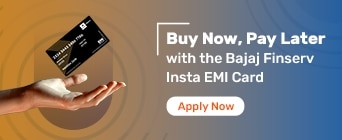Wondering whether the budget-friendly iPhone SE or the feature-packed iPhone 14 Plus is right for you? Explore our in-depth comparison of iPhone 14 Plus vs SE (3rd Gen) to make an informed
Trying to choose between the affordable iPhone SE and the larger, feature-rich iPhone 14 Plus? These two models cater to very different audiences. The iPhone SE is Apple’s most budget-friendly offering, retaining the home button and compact form. Meanwhile, the iPhone 14 Plus is a modern powerhouse with a big display, longer battery life, and advanced camera features.
This in-depth iPhone 14 Plus vs SE comparison will help you make a smart decision based on size, performance, battery, and value.
Both phones are powered by the same A15 Bionic chip, but they represent completely different design eras. While the iPhone SE caters to those who prefer the classic iPhone look and feel, the iPhone 14 Plus delivers a more immersive and modern flagship experience. This section highlights the technical differences to help you understand the performance potential and usability at a glance.
Specification |
iPhone SE (3rd Gen) |
iPhone 14 Plus |
Launch Year |
2022 |
2022 |
Processor |
A15 Bionic (4-core GPU) |
A15 Bionic (5-core GPU) |
Display Size |
4.7-inch |
6.7-inch |
Display Type |
Retina HD (LCD) |
Super Retina XDR (OLED) |
Resolution |
1334 x 750 pixels |
2778 x 1284 pixels |
Pixel Density |
326 ppi |
458 ppi |
Refresh Rate |
60Hz |
60Hz |
Storage Options |
64GB, 128GB, 256GB |
128GB, 256GB, 512GB |
Water Resistance |
IP67 |
IP68 |
Authentication |
Touch ID |
Face ID |
This section explores the physical attributes of iPhone SE vs 14 Plus, helping you understand how they’ll feel in your hand and look in everyday use. From button layout to materials and colours, the design can often influence buying decisions as much as specifications.
The iPhone SE retains bezels and a home button, providing a nostalgic and straightforward experience for those coming from older models. Meanwhile, the iPhone 14 Plus is aligned with Apple’s latest aesthetic, offering a larger screen-to-body ratio, Face ID, and a durable ceramic shield front.
Design Element |
iPhone SE (3rd Gen) |
iPhone 14 Plus |
Frame |
Aluminium |
Aluminium |
Front Glass |
Standard Glass |
Ceramic Shield |
Dimensions (mm) |
138.4 x 67.3 x 7.3 |
160.8 x 78.1 x 7.8 |
Weight |
144g |
203g |
Display Notch |
None (has bezels) |
Yes (with Face ID) |
Home Button |
Yes |
No |
Colour Options |
Midnight, Starlight, PRODUCT(RED) |
Blue, Purple, Midnight, Starlight, PRODUCT(RED) |
The SE is easier to hold and operate with one hand, making it a good fit for light users. In contrast, the 14 Plus brings a more luxurious design and screen that appeals to users who consume media or prefer a more premium aesthetic.
Camera capability is a major deciding factor for most smartphone users. This section breaks down how each model performs in photography and videography, highlighting the practical impact of single vs dual-lens setups and modern software features.
While the iPhone SE has a decent single-lens camera, it lacks many modern computational photography features. The iPhone 14 Plus, on the other hand, delivers much better low-light performance, cinematic features, and a wider field of view with its dual-camera setup.
Camera Feature |
iPhone SE (3rd Gen) |
iPhone 14 Plus |
Rear Cameras |
Single 12MP wide |
Dual 12MP (Main + Ultra-Wide) |
Front Camera |
7MP |
12MP with TrueDepth |
Night Mode |
No |
Yes |
Cinematic Mode |
No |
Yes (1080p at 30fps) |
Photographic Styles |
No |
Yes |
Smart HDR |
Smart HDR 4 |
Smart HDR 4 |
Deep Fusion |
Yes |
Yes |
Video Recording |
4K up to 60fps |
4K up to 60fps + Dolby Vision |
While both phones share the same A15 chip, differences in RAM and GPU configuration lead to small but noticeable differences in real-world multitasking and gaming. The iPhone 14 Plus also has one of the best batteries in the iPhone lineup, lasting hours longer than the SE.
This section focuses on how long the phones last in daily use and how well they handle demanding apps or multi-app workflows.
Metric |
iPhone SE (3rd Gen) |
iPhone 14 Plus |
Chipset |
A15 Bionic (4-core GPU) |
A15 Bionic (5-core GPU) |
RAM |
4GB |
6GB |
Battery Life (Video) |
Up to 15 hours |
Up to 26 hours |
Fast Charging |
50% in 30 mins (20W) |
50% in 30 mins (20W) |
Wireless Charging |
Qi Wireless |
MagSafe + Qi |
5G Connectivity |
Yes |
Yes |
This section examines software and ecosystem advantages. While both devices support iOS 17 and receive similar updates, some features are hardware-restricted. The 14 Plus benefits from Face ID, MagSafe, and better accessory integration.
The iPhone SE continues to support Touch ID, which some users prefer for ease of use, especially while wearing masks or gloves.
Feature |
iPhone SE (3rd Gen) |
iPhone 14 Plus |
OS Compatibility |
iOS 17 |
iOS 17 |
Face ID |
No |
Yes |
Touch ID |
Yes |
No |
MagSafe Accessories |
No |
Yes |
Crash Detection |
Yes |
Yes |
Emergency SOS |
Yes |
Yes (via satellite in some regions) |
Cost is a major consideration, especially when both models offer strong performance. This section compares the official prices, showing what you get for the price difference.
Model |
Storage |
Price (India) |
iPhone SE |
64GB |
₹49,900 |
128GB |
₹54,900 |
|
256GB |
₹64,900 |
|
iPhone 14 Plus |
128GB |
₹79,900 |
256GB |
₹89,900 |
|
512GB |
₹1,09,900 |
Now that you've seen the detailed comparison, here’s a quick summary to help you decide.
Choose iPhone SE if you:
Prefer a small, pocketable phone with a home button
Are upgrading from an older iPhone and want familiarity
Have a limited budget but want Apple’s performance and software
Use your phone for basic apps, browsing, and communication
Choose iPhone 14 Plus if you:
Want a modern, immersive display and Face ID
Need a bigger screen for reading, media, and gaming
Care about camera quality, video recording, and battery life
Expect to keep the device for several years and use it intensively
Whether you're leaning towards the budget-friendly iPhone SE or the feature-packed iPhone 14 Plus, the Bajaj Finserv Insta EMI Card makes both options easier to own—thanks to flexible, easy EMIs and zero upfront payment options.
No matter your choice, the Bajaj Finserv Insta EMI Card helps make your purchase more manageable.
Benefits include:
EMIs over 1 to 60 months
Zero down payment on select models
Easy EMI to help divide the cost into instalments
Pan-India acceptance at Apple stores, e-commerce platforms, and retail outlets
Quick digital approval
Enjoy your new iPhone the smart way — with flexible payments and zero financial stress.
Related to Bajaj Finserv EMI Network Card
- EMI Card
- Bajaj Finserv EMI Network Card Login
- Bajaj Customer Portal
- Apply for Bajaj Finserv Insta EMI Card
- Eligibility For Bajaj Finserv EMI Network Card
- Bajaj Finserv EMI Network Card Benefits
- Bajaj Finserv EMI Network Card Charges
- Bajaj Finserv EMI Network Card Offers
- Bajaj Finserv Partner Stores
- No Cost EMI
- EMI Without Credit Card
- EMI Card VS Credit Card
- Bajaj Finserv EMI Network Card Accepted Shops
- Check EMI Network Card Details
- Bajaj Finserv EMI Network Card Statement
- Bajaj Finserv EMI Network Card Cash Withdrawals
- Bajaj Finserv EMI Network Card Limit
- Bajaj Finserv EMI Network Card Status
- EMI Network Card FAQs
- Unblock EMI Network Card
- Interest on EMI Network Card
Manage your EMI Network Card
- How to Activate Bajaj Finserv EMI Network Card?
- How to Increase Bajaj Finserv EMI Network Card Limit?
- How to Use Bajaj Finserv EMI Network Card?
- How to get Bajaj Finserv EMI Network Card number?
- How to Check EMI Network Card Balance?
- How to Change the Bajaj Finserv EMI Network Card Pin?
- How to Get the Bajaj Finserv EMI Network Card Pin?
- How to Change the Registered Bajaj Finserv EMI Network Card Phone Number?
- How to Check the Bajaj Finserv EMI Network Card CVV Online?
- How Does No Cost EMI Work?
- No Cost EMI at Amazon
- No Cost EMI At @Home
- No Cost EMI at Flipkart
- No Cost EMI Goibibo
- No Cost EMI at Hometown
- No Cost EMI at MMT
- No Cost EMI at Xiaomi
- No Cost EMI at Oneplus
- No Cost EMI at Oppo
- No Cost EMI at PayTm
- No Cost EMI at Pepperfry
- No Cost EMI at Realme
- No Cost EMI at Samsung
- No Cost EMI at Vivo
- No Cost EMI at Yatra
Shop for products on EMI
- Laptops on EMI
- Mobile on EMI
- iPhone on EMI
- AC on EMI
- Cycle on EMI
- Furniture on EMI
- HP Laptop on EMI
- iPhone 13 on EMI
- TV on EMI
- Dell Laptop on EMI
- Inverter on EMI
- Washing Machine on EMI
- Camera on EMI
- Flight Tickets on EMI
- Computer on EMI
- iPad on EMI
- Electronics on EMI
- Macbook on EMI
- Refrigerator on EMI
- Modular Kitchen on EMI
- Printer on EMI
- Sofa on EMI
- Travel on EMI
- Macbook Air on EMI
- Tour Packages on EMI
- Tyre on EMI
- Apple Watch on EMI
- Iphone XR on EMI
FAQs: Apple iPhone 14 Plus vs iPhone SE
Is the iPhone SE still good in 2026?
Yes, it's ideal for users who want compact size, Touch ID, and Apple’s software ecosystem.
How does the iPhone 14 Plus camera compare to the SE?
The iPhone 14 Plus offers a superior dual-camera system with night mode, cinematic mode, and better video.
Does the iPhone 14 Plus support MagSafe?
Yes. It supports the full MagSafe ecosystem of accessories.
Can I use the same charger for both models?
Yes. Both support Lightning and are compatible with 20W fast charging.
Which one is better for senior citizens or first-time users?
The iPhone SE is easier to use thanks to its smaller size and physical home button.
Is the iPhone 14 Plus worth the extra cost?
If you value battery, camera, and future-ready design, the investment is well worth it.
What is the major difference between Apple iPhone 14 Plus and iPhone SE?
The iPhone 14 Plus features a larger 6.7-inch OLED display, better battery life, and Face ID, while the iPhone SE offers a compact 4.7-inch LCD screen with a Home button and Touch ID.
Is Apple iPhone 14 Plus worth more than the iPhone SE?
Yes, the iPhone 14 Plus is priced higher due to its larger display, improved battery, advanced camera system, and modern design. It offers more value for users seeking an up-to-date iPhone experience.
Is the Apple iPhone 14 Plus's battery life significantly better than the iPhone SE?
Absolutely. The iPhone 14 Plus delivers up to 26 hours of video playback, compared to the iPhone SE’s 15 hours—making it a much better choice for all-day usage without frequent charging.
How does the display quality of the Apple iPhone 14 Plus compare to the iPhone SE?
The iPhone 14 Plus has a brighter, higher-resolution OLED display that supports HDR, while the iPhone SE uses a smaller, lower-resolution LCD panel. The difference is very noticeable in media and gaming.
Are there any new features in the Apple iPhone 14 Plus not available in the iPhone SE?
Yes. The iPhone 14 Plus includes Face ID, Cinematic Mode, Action Mode, crash detection, and a dual-camera system—none of which are available on the iPhone SE.
Is the Apple iPhone 14 Plus worth the upgrade from the iPhone SE?
If you value a bigger screen, superior camera, longer battery life, and newer features, then the iPhone 14 Plus is definitely worth the upgrade over the iPhone SE.






